NFL Teams That Are Failing Their Rebuild Plans in 2023
NFL Teams That Are Failing Their Rebuild Plans in 2023
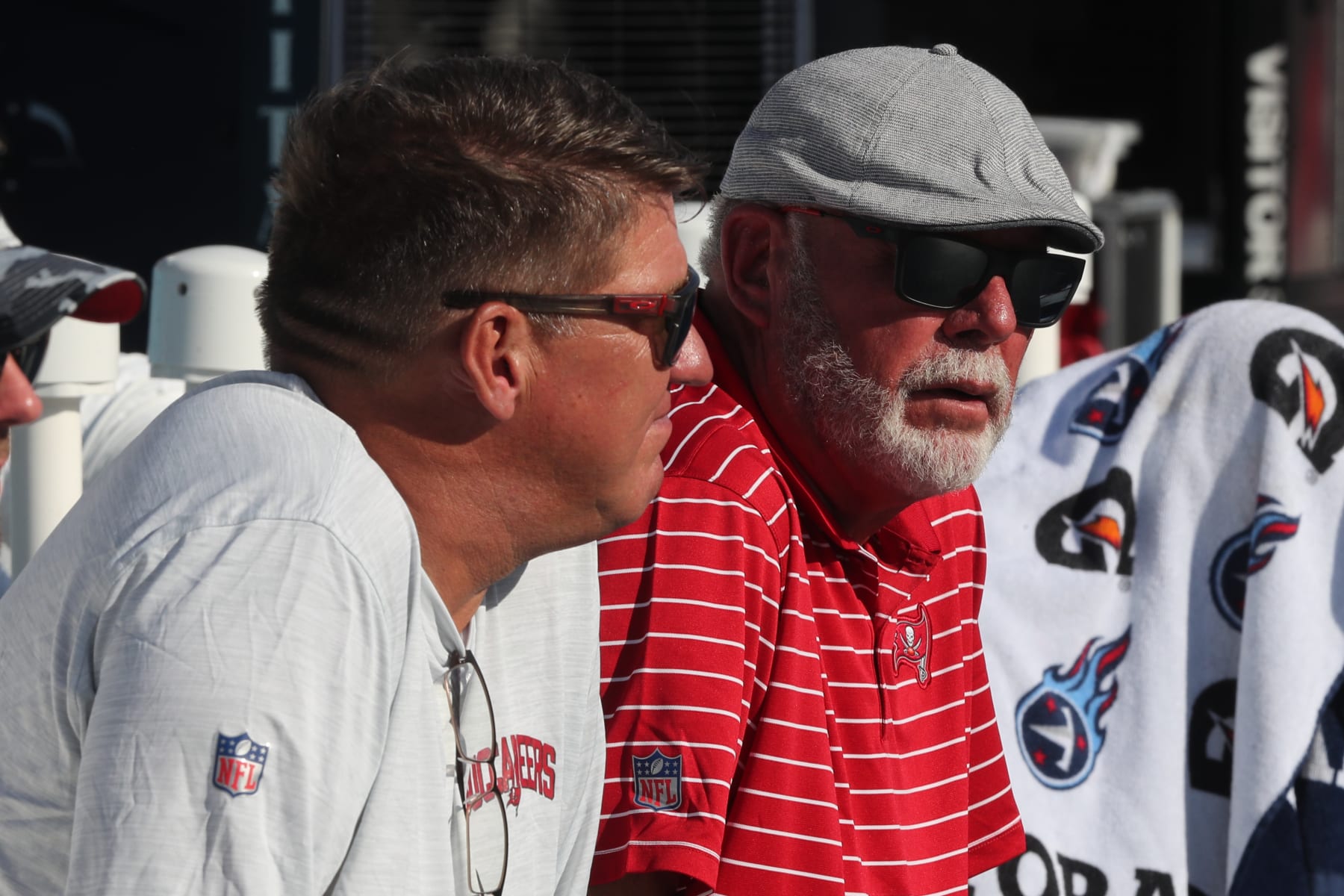
The worst thing an NFL franchise can have is a middle-of-the-pack team. The goal is to have a legitimate Super Bowl contender, whether that's in the present or in the coming years.
Teams that hover around .500 don't have the talent for a deep postseason run, and they rarely end up with the cap and draft capital needed to dramatically change their fortunes.
Sometimes, it's best to blow things up, get younger and cheaper at key positions and stockpile that aforementioned capital for a pivotal offseason. That's what the Chicago Bears did in 2022, landing the top overall pick, flipping that for even more draft capital and creating the assets needed to add the likes of D.J. Moore, Robert Tonyan Jr., Nate Davis, T.J. Edwards and rookie tackle Darnell Wright over the past few months.
The moves will have to play out on the field, but the plan has been solid. For the following franchises, the rebuilds have gotten off to less promising starts. We'll dive into the teams, their situations and where the flaws in their processes lie below.
Green Bay Packers
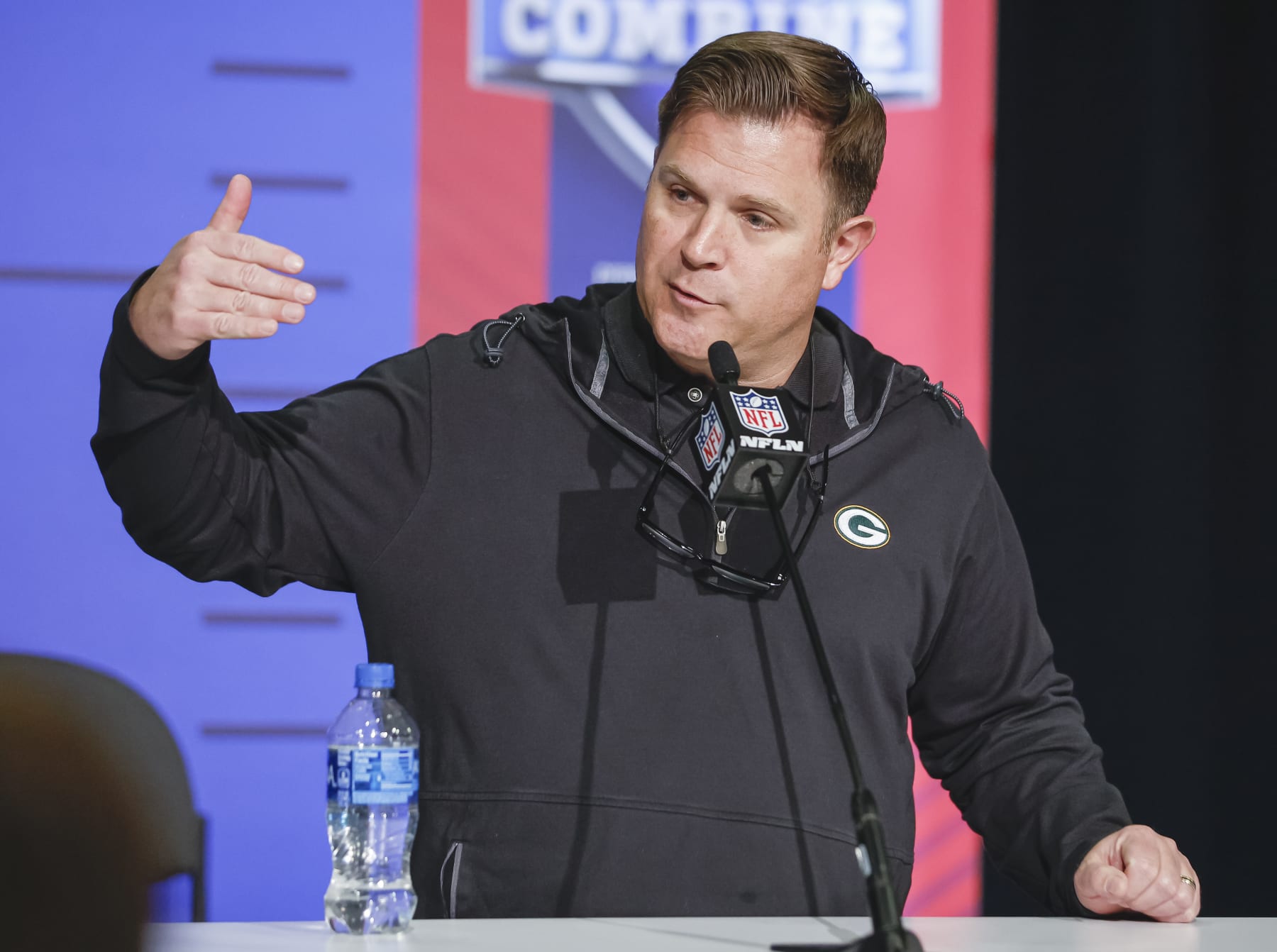
The Green Bay Packers deserve credit for getting a strong haul for Aaron Rodgers. They moved up two spots in the first round and added a 2023 second-round pick, a 2023 sixth-round pick and a 2024 second-round pick that will become a first-rounder if Rodgers plays 65 percent of the offensive snaps in 2023 for the legendary quarterback and a fifth-rounder.
Unfortunately, that's about the brightest aspect of Green Bay's rebuilding offseason.
The Packers are starting over at QB with Jordan Love, but they have failed to surround him with proven talent. Green Bay parted with vets Allen Lazard, Tonyan, Randall Cobb and Jarran Reed while doing virtually nothing to replace them in free agency.
What's especially problematic is the fact that Green Bay got extremely young in its receiving corps. Second-year wideouts Christian Watson and Romeo Doubs are not experienced leaders in a group that also includes rookies Luke Musgrave, Jayden Reed and Tucker Kraft.
That's a potential issue because the Packers have just two seasons left with which to evaluate Love before he becomes a free agent. The 24-year-old has a single start on his resume and will largely learn on the fly along with his skill players.
The early offseason buzz on Love has been positive.
"Looks more refined, the way he holds the ball, his command overall," ESPN's Jeremy Fowler said on SportsCenter.
However, there's a big difference between non-contact drills and regular-season action—something of which Love has seen little.
Green Bay is in an odd position, where it has too much talent to push for a top 2024 QB prospect such as Drake Maye or Caleb Williams should Love stumble, and it is perhaps too unseasoned offensively to get an accurate read on what Love can be as a pro.
This half-commitment to both sides of the process could derail Green Bay's chances of continuing to enjoy quarterback stability after 30 years of having a Hall of Famer under center.
Los Angeles Rams
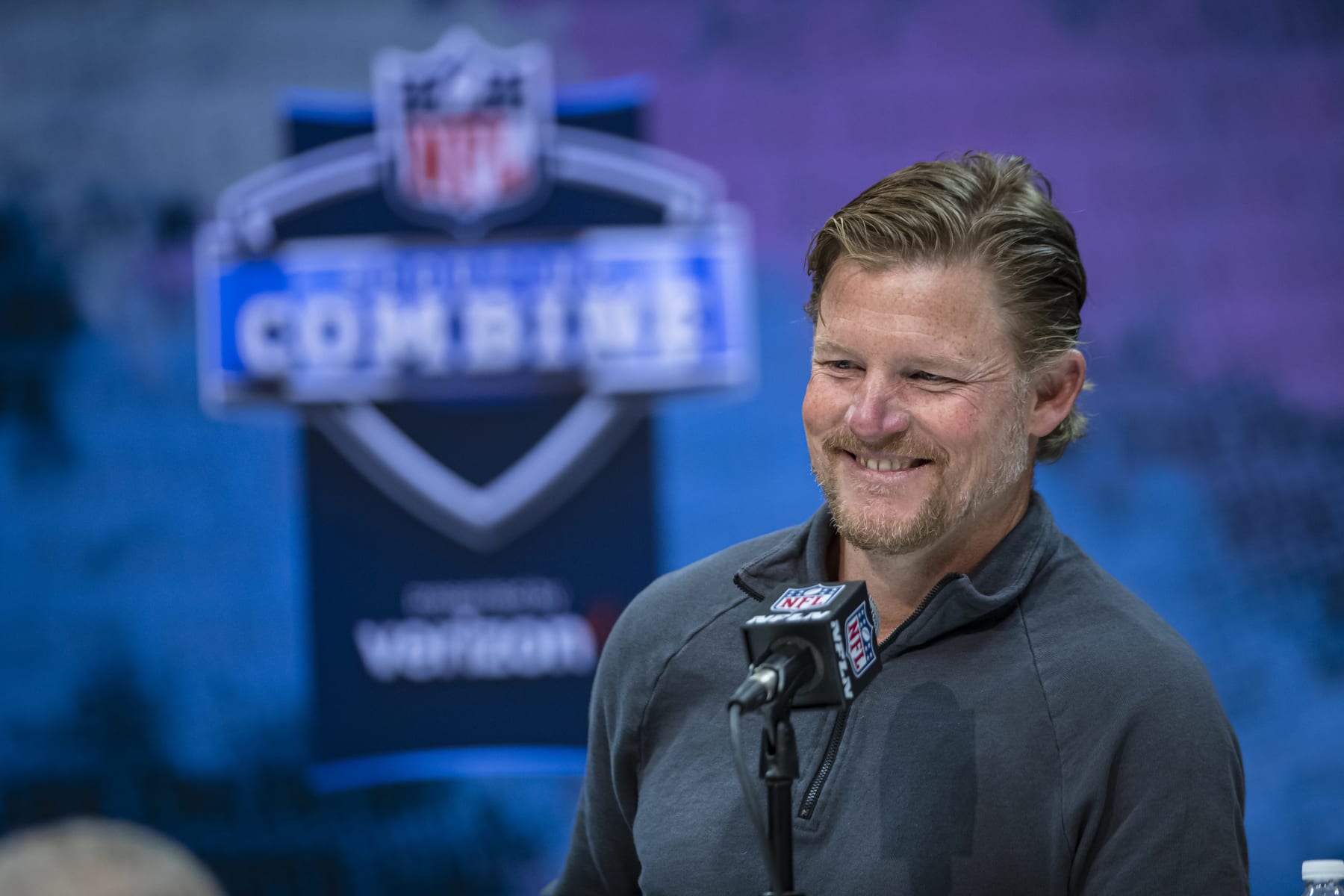
The Los Angeles Rams aren't starting over at quarterback, and that's arguably the biggest issue with the rebuild they began undertaking earlier in the offseason.
Los Angeles parted with key contributors Leonard Floyd, Jalen Ramsey, Bobby Wagner, David Long Jr., Allen Robinson II, A'Shawn Robinson and Nick Scott in free agency or via the trade market.
Tearing down the roster was a logical decision after the Rams' disappointing 5-12 campaign. though general manager Les Snead has been reluctant to admit that his team is rebuilding.
"We would almost have to somewhat tear it down to rebuild," Snead said in January, per Stu Jackson of the team's official website. "Because we do have a lot of really good players in their prime on this roster."
One of those "good" players is 35-year-old quarterback Matthew Stafford. He finished the year on injured reserve with a neck injury and concussion, but he wasn't particularly effective before the injury—posting a 4-6 record and an 87.4 quarterback rating.
While Stafford did deal with an elbow injury during the 2022 offseason, which could explain some of his struggles, he was also hindered by an offense that lacked depth—an issue that hasn't simply gone away. A rebound for the one-time Pro Bowler just might not come.
L.A. had a narrow window to try to trade Stafford to a potential contender, but it passed when his 2024 salary became fully guaranteed on March 17. This means the Rams are saddled with the expensive contracts of aging players Stafford, Cooper Kupp and Aaron Donald for at least another year.
As is the case in Green Bay, a half-commitment to rebuilding could leave the Rams hovering around .800 this season. If you also consider the fact that L.A. didn't get great value out of some of its moves—trading Ramsey netted tight end Hunter Long and a third-round pick, and the Rams paid $10.3 million of Robinson's salary to move him—and it adds up to some very awkward first steps in what will eventually be a total Rams rebuild.
New York Jets
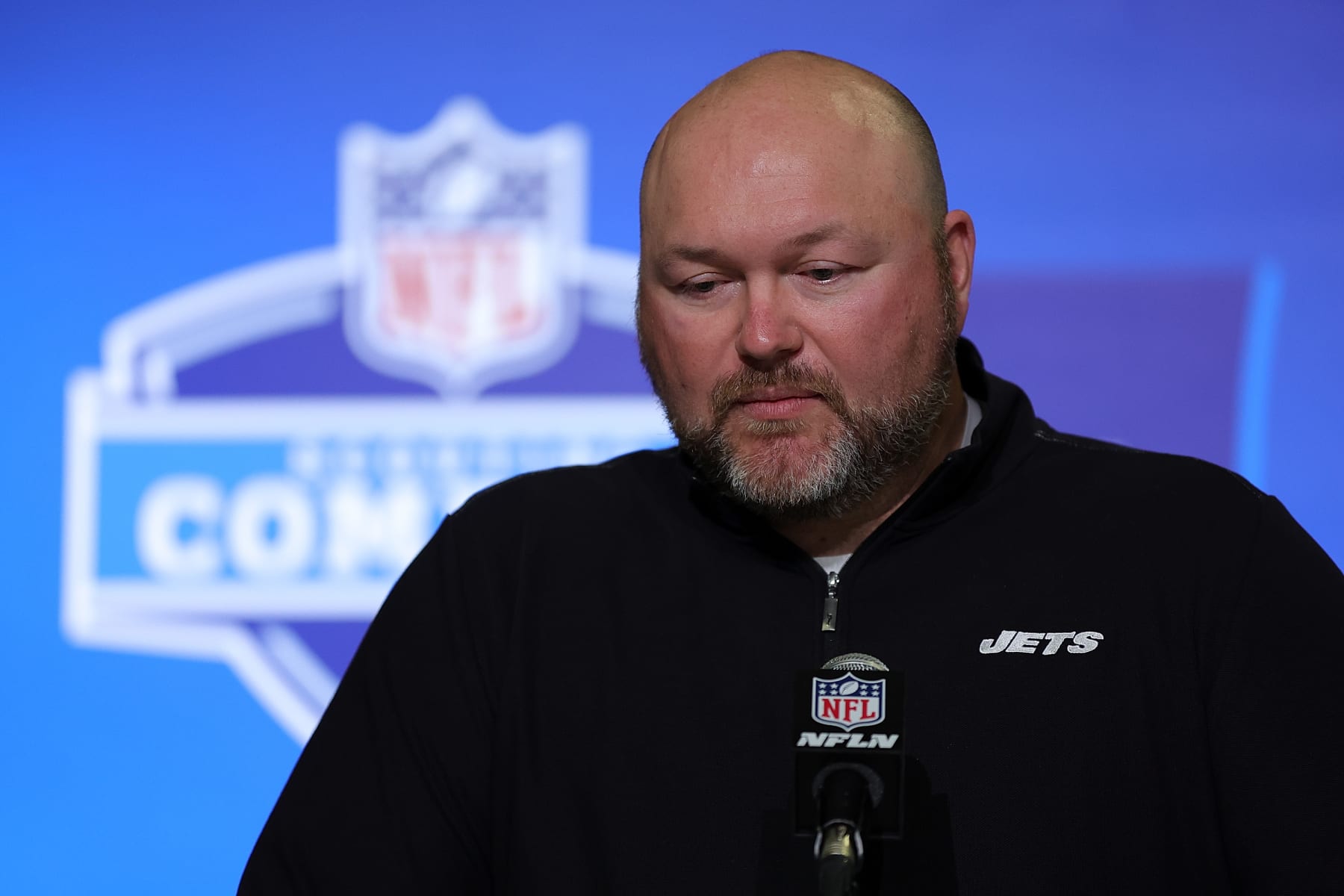
The New York Jets were on the other side of the Rodgers trade, and while adding him doesn't represent a total overhaul, the Jets did do a fair amount of offensive remodeling while essentially pulling the plug on 2021 first-round pick Zach Wilson.
New York added veterans such as Rodgers, wideout Allen Lazard and receiver Mecole Hardman. They also replaced offensive coordinator Mike LaFleur with former Packers OC Nathaniel Hackett.
These moves could make the Jets a contender in 2023, though the remodel isn't likely to yield long-term results or guaranteed success.
The issue here is that New York's success is far from guaranteed. The Jets play in arguably the league's toughest division, and Rodgers didn't play particularly well last year (91.1 passer rating).
While Rodgers has stated that his marriage with the Jets isn't a "one-and-done" commitment, there's a very real chance that the 39-year-old doesn't play beyond the 2023 season. Given the cost of acquiring him, the Jets have made a massive gamble on Rodgers and the upcoming season.
And they just haven't done enough to ensure that Rodgers succeeds. Surrounding him with familiar faces was a nice touch, but New York failed to adequately address the tackle position.
Trading down in the first round cost the Jets a chance to draft one of the top tackle prospects, and they're left with the 37-year-old Duane Brown and the oft-injured Mekhi Becton on the offensive edges.
New York also failed to add a high-end backup quarterback, which means if Rodgers goes down, the Jets will go right back to Wilson and fall out of the Super Bowl conversation. If the offense does have to play a stretch without Rodgers, it would be in much better hands with, say, Jacoby Brissett or Teddy Bridgewater under center than with Wilson.
And anything short of a deep playoff run will likely have head coach Robert Saleh and general manager Joe Douglas firmly on the hot seat.
Tennessee Titans
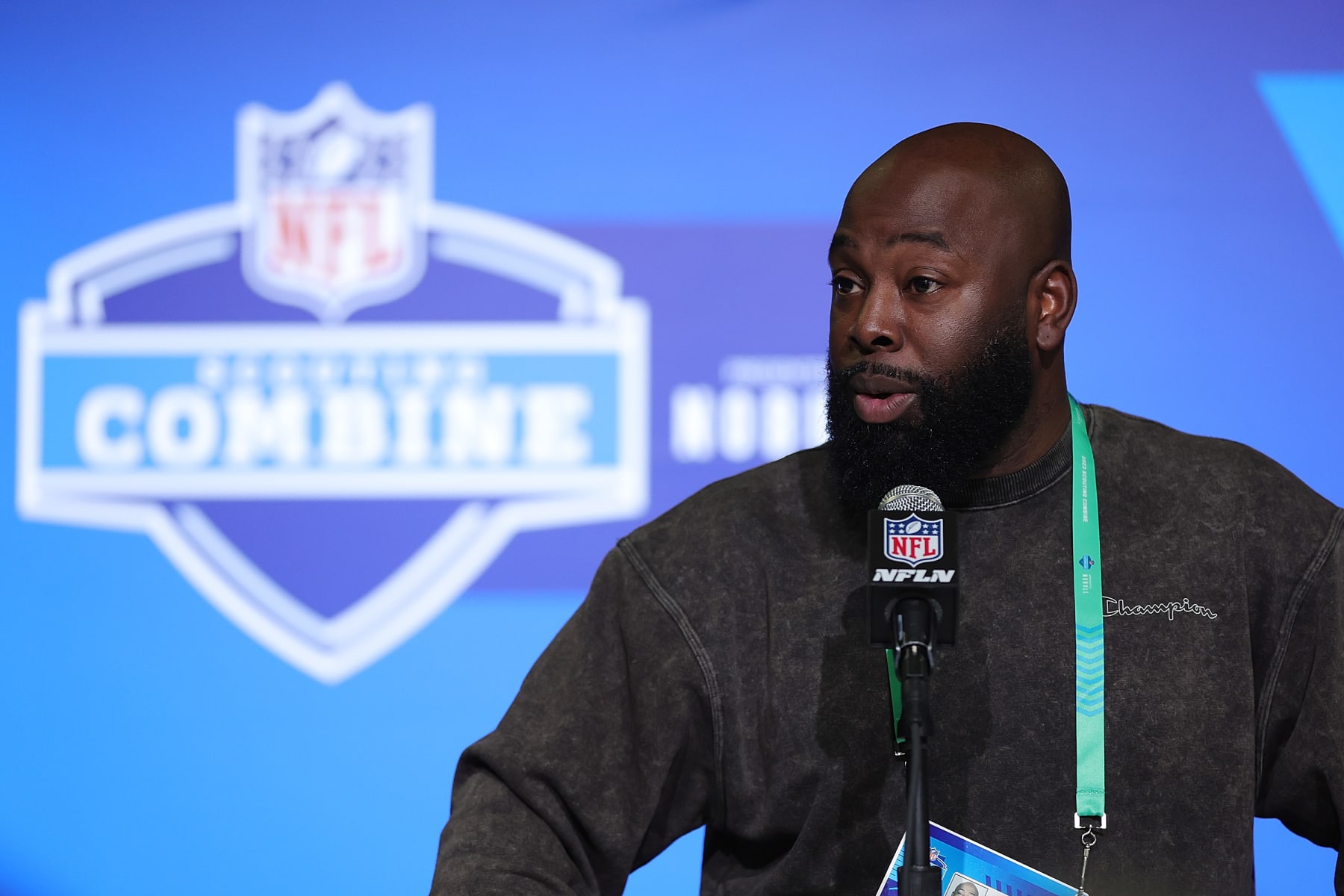
New Tennessee Titans general manager Ran Carthon made some tough decisions early this offseason. After examining a middling roster that went 7-10 in 2022, Carthon parted with veterans Bud Dupree, Taylor Lewan, Robert Woods and Randy Bullock for financial purposes.
The Titans also lost notable players such as David Long Jr. (not the former Ram), DeMarcus Walker and Nate Davis in free agency.
On paper, the Titans are not a better team than they were a year ago, especially after focusing entirely on offense in the draft. Tennessee didn't use a single selection to address a defense that ranked 32nd against the pass and 23rd overall last season.
So while the Titans will have a shot in the underwhelming AFC South, they're not legitimate title contenders. That puts them in an awkward position as quarterback Ryan Tannehill and running back Derrick Henry enter the final years of their contracts.
Trading Henry and parting with Tannehill would have been the right way to rip off the proverbial Band-Aid and perhaps have a shot at a top 2024 QB prospect. However, Henry's value dropped significantly after teams addressed the running back position in the draft and players like Ezekiel Elliott and Dalvin Cook hit the open market.
Tennessee also failed to move up for one of the top three quarterbacks in the draft—Bryce Young, C.J. Stroud and Anthony Richardson—leaving them with an unfinished product in 33rd overall pick Will Levis.
Tennessee could still save $27 million in cap space by cutting Tannehill, but he now appears likely to start, as he has been "head and shoulders above" Levis and Malik Wilson in early offseason workouts, according to ESPN's Turron Davenport.
It feels like the Titans will be just good enough to miss out on a top 2024 quarterback, meaning their future at the game's most important position is a "Levis-or-bust" scenario for at least the next two years.
Tampa Bay Buccaneers
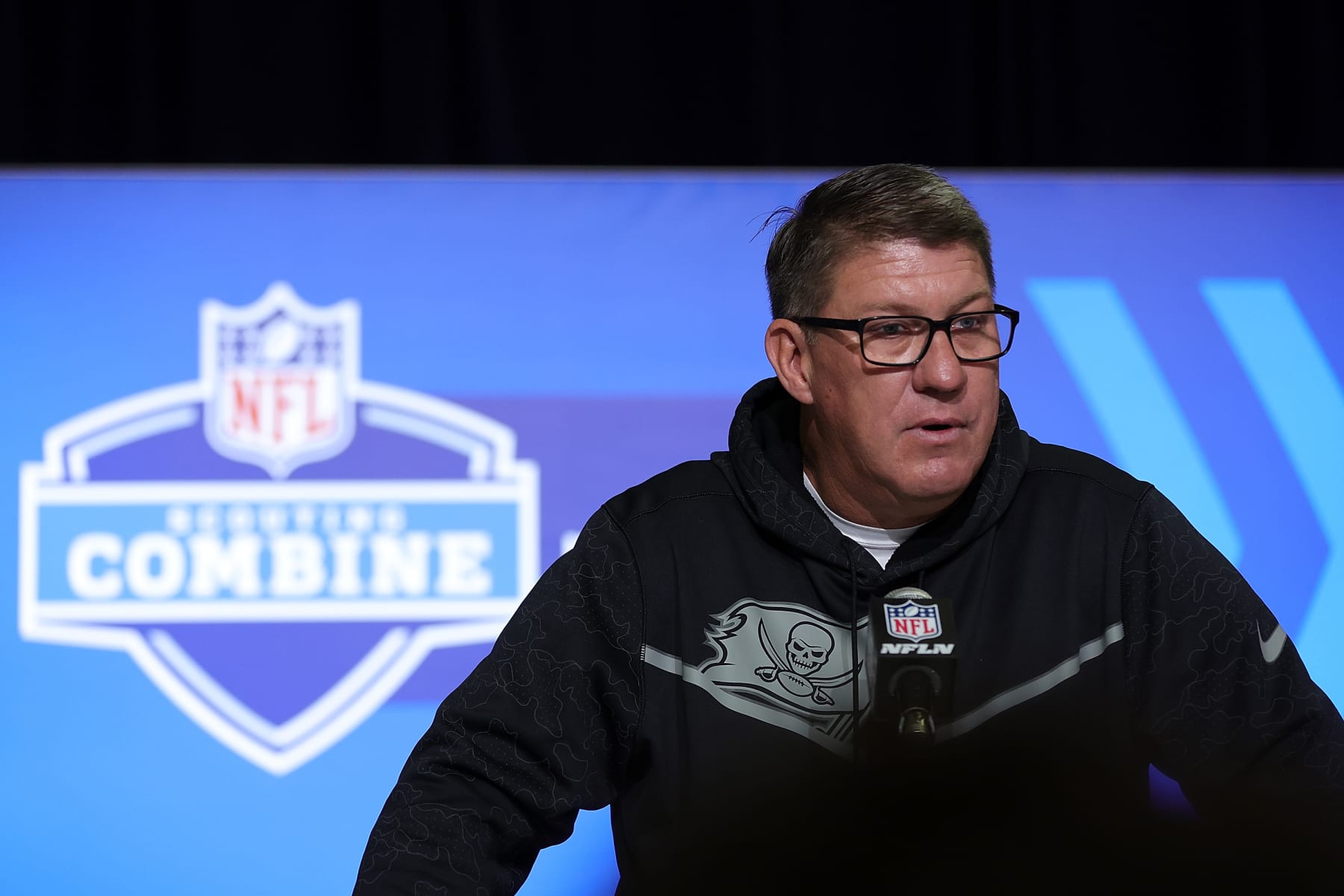
The Tampa Bay Buccaneers did a fair amount of rebuilding following the retirement of quarterback Tom Brady. While general manager Jason Licht did retain players such as Jamel Dean, Anthony Nelson and linebacker Lavonte David, he also watched several key contributors depart in free agency.
Former Buccaneers standouts Leonard Fournette, Donovan Smith, Rakeem Nunez-Roches, Akiem Hicks, Cameron Brate, O.J. Howard, Sean Murphy-Bunting and Scott Miller are now gone.
At quarterback, the Bucs will have either 2021 second-round pick Kyle Trask or free-agent addition Baker Mayfield. It's not the worst situation, as Tampa could find a long-term answer at quarterback if one of them emerges as a viable starter—though Mayfield could depart in 2024 and Trask in 2025.
That's a big "if," though, because Tampa did little to address a questionable offensive line—rookie Cody Mauch appears poised to start, while the Bucs will try flipping Tristan Wirfs to left tackle—and an underwhelming backfield. At the same time, Tampa is probably too talented to truly tank for a quarterback even if Mayfield and/or Trask struggle.
By retaining players like Dean, Nelson and David—not to mention impending 2024 free agents and potential trade chips Mike Evans and Devin White—Licht is trying to remain relevant in 2023.
That's perhaps good for his immediate job security but not for the long-term health of the franchise.
The Buccaneers could win the NFC South again this season, but they're not going to challenge for a Super Bowl. That will leave them without a shot at a blue-chip quarterback prospect and with a very sticky financial situation next offseason.
Players like Evans, White, Mayfield, David, Antoine Winfield Jr. and Ryan Neal will be free agents in 2024. The Buccaneers, meanwhile, are projected to have just $12.1 million in cap space next year.
Faced with a choice between tearing it down and trying to reload, Licht picked the middle road. As noted earlier, being in the middle is not where a franchise should hope to be.
Cap and contract information via Spotrac.
